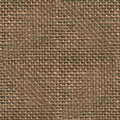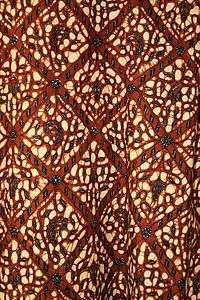Donegal tweed
Donegal tweed is a handwoven tweed manufactured in County Donegal, Ireland. Donegal has for centuries been producing tweed from local materials in the making of caps, suits and vests. Sheep thrive in the hills and bogs of Donegal, and indigenous plants such as blackberries, fuchsia, gorse (whins), and moss provide dyes. Towards the end of the eighteenth century The Royal Linen Manufacturers of Ulster distributed approximately six thousand flax wheels for spinning wool and sixty looms for weaving to various Donegal homesteads. These machines helped establish the homespun tweed industry in nineteenth-century Donegal.[1]
While the weavers in County Donegal provide a number of different tweed fabrics, including herringbone and check patterns, the area is best known for a plain-weave cloth of differently-coloured warp and weft, with small pieces of yarn in various colours woven in at irregular intervals to produce a heathered effect. Such fabric is often labeled as "donegal" (with a lowercase "d") regardless of its provenance.
References
- ↑ Hoad, Judith (1987). This Is Donegal Tweed, Shoestring Publications, Inver.


.svg.png)